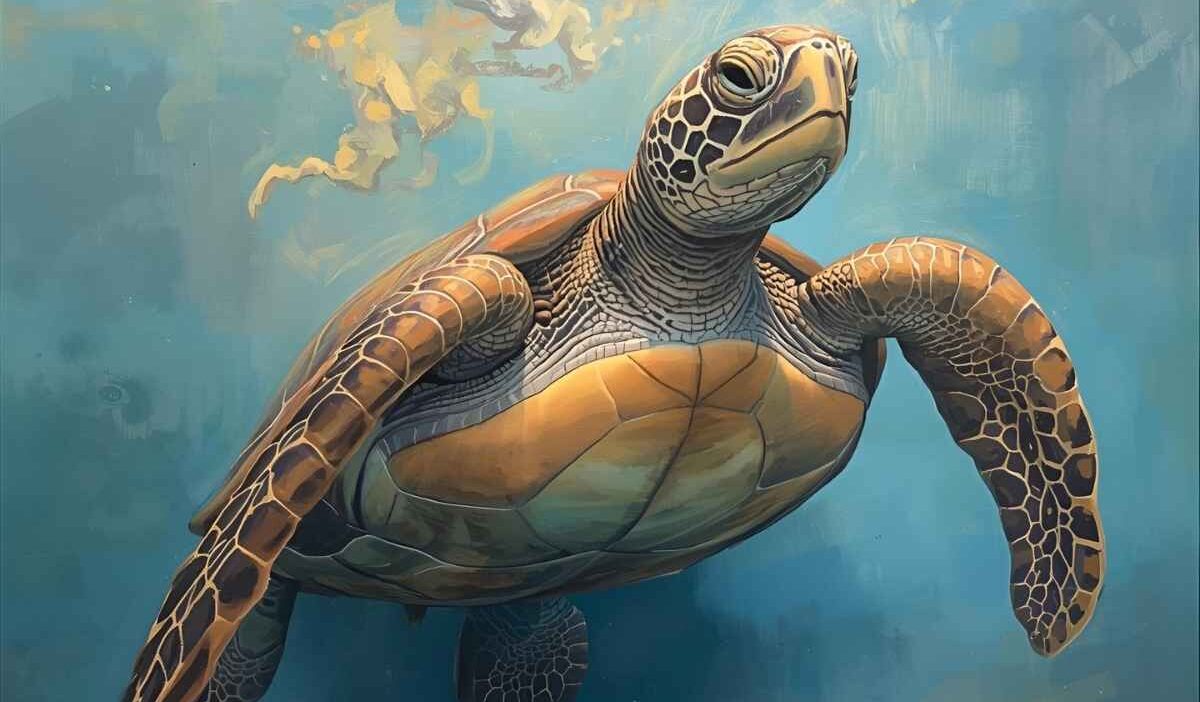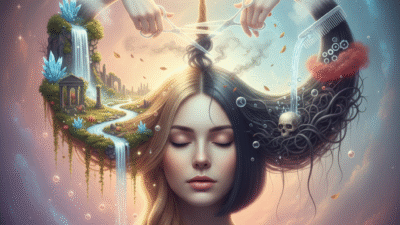A dream of turtle often symbolizes patience, protection, wisdom, and slow but steady progress. At its core, such dreams ask you to slow down, trust your inner strength, and build resilience.
In this article, we’ll explore why a dream of a turtle fascinates us, dive into general, psychological, spiritual, and cultural interpretations, explore many variations (eating turtles, sharing turtles, birthday turtle, wedding turtle, etc.), include a real-life example, then cover historical symbolism, psychological growth advice, FAQs, and a strong conclusion.
Why Turtle Dreams Fascinate
Dreams involving turtles are compelling because the turtle is a deeply symbolic creature across many cultures, combining seeming contradictions: slow yet enduring, vulnerable yet armored, terrestrial yet aquatic. When a turtle appears in your dreams, it often draws your attention to internal rhythms you may be ignoring, urging you to respect both your pace and your boundaries.
Many people wake curious: “What does a turtle in my dream mean?” The symbolic richness means there is no single answer — the context, your feelings, and your life’s circumstances all color the meaning. But by exploring general symbolism, variations, and cultural roots, you can begin interpreting what your subconscious is communicating. This article covers:
- The general symbolism and psychological / spiritual meanings of a dream of turtle
- Common variations and how each nuance can shift meaning
- A realistic case study to show how it may manifest
- The cultural and historical symbolism of turtles
- Psychological insights and practical steps for personal growth
- An FAQ section
- A conclusion summarizing key takeaways
Let’s begin with the foundations.
General Meaning, Symbolism & Psychological / Spiritual Interpretations
When you dream of turtle, many layers of meaning may be present. Here are the major themes and how experts or symbolic dictionaries frame them.
Core Symbolism
- Patience & Slow Progress
Turtles move deliberately and steadily. Dreaming of a turtle frequently signals that you should take your time, resist rush, and trust incremental progress rather than quick fixes. Practical Psychology+2Shuteye App+2 - Protection, Safety & Boundaries
The turtle’s shell is its shield. In a dream, a turtle suggests you may need emotional boundaries or retreat into your “shell” when feeling threatened or overwhelmed. adreammeaning.com+2Auntyflo.com+2 - Wisdom, Longevity, and Endurance
Because turtles live long lives and endure through difficulties, a turtle dream can symbolize wisdom accumulated over time, resilience, and an ability to persevere. adreammeaning.com+3ceruleanbay.com+3Medium+3 - Inner Guidance & Unconscious Awareness
In spiritual interpretations, turtles navigate both land and water — bridging conscious life and emotional depths. Thus, a dream of turtle may encourage you to listen more to intuition or unconscious impulses. Auntyflo.com+3Centre of Excellence+3Spirit Animal Totems+3 - Resistance to Change or Avoidance
On the flip side, sometimes the turtle’s slow pace indicates hesitation, fear of change, or avoidance of confronting something in your life. psychologistworld.com+3dreamepiphany.com+3adreammeaning.com+3
Psychological Perspectives
- Depth Psychology / Jungian View
A turtle may represent an archetypal symbol of the Self or the deeper unconscious. For Carl Jung, animals often emerge in dreams as bridges to collective or personal unconscious forces. carl-jung.net+2Carl Jung Depth Psychology+2
The turtle shell can represent a psychic boundary or a protective ego. The dream may be showing where you are too guarded or, conversely, where boundaries are needed. - Freudian / Psychoanalytic Angle
Some older dream dictionaries (e.g. Miller’s Dream Dictionary) link turtle symbolism to defense, retreat, or even womb imagery (because of the shell as a container). psychologistworld.com - Cognitive / Modern Psychology
From the modern psychological viewpoint, dreams reflect emotional states, conflicts, or desires. A turtle dream may highlight that you’re under pressure to “speed up” in life but your psyche is urging you to maintain balance and not overextend. Shuteye App+2Practical Psychology+2
Common Variations of Dream of Turtle Meaning
Below are several specific dream-scenarios involving turtles. Each has unique nuances — positive, negative, or both — depending on context, emotion, and details of the dream.
H3: Eating a Turtle
Dreaming you eat a turtle is unusual and can be jarring. Symbolically:
- Positive angle: It may represent your integration or internalizing of turtle qualities — you are absorbing patience, longevity, or wisdom into your self.
- Negative angle: It may suggest self-sabotage, consuming something protected or sacred, or destroying your own defenses by overextending yourself.
Because turtle is not a typical “food,” this scenario emphasizes something deep: you are trying to internalize or digest slow growth, protection, or wisdom, perhaps too aggressively.
Making or Creating a Turtle
If you dream you create or build a turtle (e.g. crafting a turtle statue or toy):
- Positive: You are consciously shaping aspects of your protection, resilience, or inner wisdom. You’re intentionally building your boundaries or sense of self.
- Negative: It could suggest you are forcing symbols of safety or wisdom rather than developing them organically. It may reflect artificiality or pressure to “look wise” rather than truly grow.
This variation signals an interplay between conscious intention and subconscious symbols.
Sharing or Giving a Turtle
If in your dream you share, gift, or pass a turtle:
- Positive: Generosity of your inner wisdom, passing along protection, mentoring, sharing emotional strength, or helping another become grounded.
- Negative: You might be giving away your own defenses too easily or exposing yourself. You might feel drained by over-giving.
This dream suggests relational dynamics: what you give, and whether you lose something in the process.
Birthday Turtle / Special Event Turtle
Dreaming of a birthday turtle or a turtle in a celebration signals a turning point:
- Positive: New beginnings, maturation, stepping into a new life phase with the wisdom and steadiness the turtle represents. It’s a symbolic rebirth in slow, stable form.
- Negative: It might warn that a celebration is premature, or that you are pushing yourself into change too quickly, ignoring the need for gradual growth.
This variation ties turtle symbolism with milestones and timing.
Wedding Turtle / Marital Turtle
If a turtle appears in a wedding or romantic setting:
- Positive: Commitment grounded in deep wisdom, loyalty, stability, and enduring partnership. A turtle may forecast a long-lasting union built on emotional protection and mutual support.
- Negative: It could signify slowness in the relationship, hesitation, or fear of vulnerability. Perhaps one partner is guarded behind a shell, or there’s reluctance to fully open up.
This variant highlights how turtle energies manifest in love, trust, and shared life.
Other Special Types (Flying Turtle, Giant Turtle, Injured Turtle)
- Flying Turtle: Surreal and symbolic of transcendence, breaking free from limitations. A flying turtle suggests your protective measures are being elevated or transcended.
- Giant Turtle: Amplification of qualities — suggests a powerful strength, a guiding parent figure or guardian, or a large protective presence in your life.
- Injured Turtle: Signals vulnerability in your defenses, emotional wounding, or difficulties sustaining your pace. Reflect on which area is “cracked.”
Realistic Example / Case Study
Let me share a realistic composite (not an identifiable real person) to illustrate how a “dream of turtle” might play out in someone’s life:
Case Study: “Sara and Her Turtle Dream”
Sara, a mid-30s professional working in a fast-paced tech job, was feeling burnout. She dreamt of a turtle stuck on its back, unable to right itself. She rushed to help it, flipping it over, then watched it slowly make its way across the sand into water.On writing it in her dream journal, she realized she had been pushing herself to accelerate her projects, skipping rest, ignoring boundaries. The turtle on its back represented how her defenses were overturned and vulnerable. Her act of helping it back upright symbolized her inner self urging her to restore equilibrium. The slow walk toward water was her subconscious reminding her to return to emotional flow and ease.
In her waking life, Sara took this as a signal to slow her pace, reintroduce self-care, and set clear boundaries with work. Over weeks, she reported feeling more grounded, less anxious, and making steady (if slower) progress on her goals.
This story demonstrates how the symbolic content maps onto real psychological dynamics: vulnerability, restoration, pacing, and boundary setting.
Cultural & Historical Symbolism of Turtles
Understanding the deep cultural and historical roots of turtles enriches our reading of dreams.
Myth, Religion & Folklore
- World Turtle / Cosmic Tortoise
In several mythologies (Hindu, Native American, Chinese), the “world turtle” supports the Earth or cosmos. In Hindu lore, Kurma, the tortoise avatar of Vishnu, is foundational in cosmic order. Wikipedia+2ceruleanbay.com+2 - Native American Traditions
Turtles often represent creation, the Mother Earth, longevity, and holding the world on their backs in myth. Centre of Excellence+2ceruleanbay.com+2 - East Asian / Chinese Symbolism
In Chinese culture, the turtle is a symbol of longevity, stability, and wisdom. In Feng Shui, turtle imagery often provides protective energy. Wikipedia+2ceruleanbay.com+2 - Religious / Christian Interpretations
Some Christian dream interpreters see turtles as signifying virtue, marital stability, and endurance. But in some interpretations, a turtle biting you may be negative, hinting at deception or stagnation. DreamApp+2YouTube+2
Historical, Etymology & Cultural References
- Ancient Symbol in Egypt and Early Cultures
The turtle appeared in ancient Egyptian art and hieroglyphs, associated with protection and magic. Wikipedia - Aesop’s Fable: “The Tortoise and the Hare”
In Western culture, the fable reinforces that slow and steady beats speed. This cultural narrative influences how turtles in dreams are understood symbolically. Wikipedia - Art, Literature & Popular Culture
Turtles are used in literature (e.g., Stephen King’s “The Dark Tower” series has a turtle as a cosmic figure) and art to evoke wisdom, time, and metaphysical depth. Wikipedia
Because dream symbolism is partly shaped by cultural mythos, recognizing these references can deepen your interpretation of a dream of turtle.
Psychological Insights & Personal Growth Advice
Having understood meanings and cultural symbolism, how do you apply this in your own life? Below are psychological insights and practices to grow through your dream.
Dream Journaling & Reflection
- Maintain a dream journal: note the context, emotions, setting, and turtle actions. Over time, patterns will emerge (e.g., recurring turtle dreams when you feel overwhelmed).
- Ask these guiding questions:
- What was the turtle doing (swimming, walking, flipped, hiding)?
- How did you feel (fear, calm, urgency)?
- What other elements were present (water, people, obstacles)?
- Which area of life (work, relationship, personal growth) resonates with that scenario?
Mindfulness & Slowing Down
A turtle dream often asks for slower presence. Incorporate mindfulness practices:
- Pause and breathe before decisions.
- Use walking meditation or “slow walks” to reconnect with a grounded tempo.
- Resist multitasking; adopt mono-tasking when possible.
Boundary & Self-Protection Work
Because turtle shells represent boundaries:
- Reflect where your emotional boundaries may be weak or overly rigid.
- Learn to say “no” and carve out safe space for yourself.
- Practice self-care so your “shell” doesn’t crack from overuse.
Intentional Growth & Steady Action
- Instead of forcing leaps, commit to steady, incremental progress.
- Set small milestones rather than overwhelming goals.
- Celebrate consistent, patient effort over sudden bursts.
If your turtle dreams become repetitive or distressing, consulting a trained therapist or dream analyst can help you explore deeper patterns or unresolved trauma.
FAQs — Dream of Turtle Meaning & Related Queries
Q1: What does a turtle in your dream symbolize?
A: A turtle in your dream typically symbolizes patience, wisdom, protection, and slow but steady progress. But context matters: is it injured, swimming, hiding, or being eaten? Each nuance refines the meaning.
Q2: Is dreaming of a turtle good or bad luck?
A: Usually it’s considered a positive sign — a reminder to stay grounded, to protect yourself, and to persist. However, negative angles may arise (stagnation, avoidance) if the turtle appears weak, trapped, or aggressive.
Q3: What if I dream of multiple turtles or a group of turtles?
A: Seeing several turtles can amplify the symbolism — perhaps you have many tasks or roles needing your patience. It may also indicate collective protection, support from community, or greater stability in life. Dream dictionaries sometimes interpret it as harmonious relationships or expanding wisdom. Auntyflo.com+2adreammeaning.com+2
Q4: What does it mean if I dream of a turtle laying eggs or baby turtles?
A: Eggs or hatchlings evoke fertility, new beginnings, creative projects, or nascent ideas. A turtle laying eggs in a calm environment may suggest a new idea waiting to emerge, though perhaps slowly.
Q5: What if the turtle in my dream is injured, dead, or stuck?
A: These are warning signs — you could be neglecting your inner defenses, under stress, overextended, or emotionally vulnerable. The dream is signaling a need for healing, rest, and rebalancing.
Q6: Can I influence the meaning of my dream of turtle?
A: Yes. By reflecting on your life context, emotional states, and dream journal patterns, you can guide the interpretation toward what resonates most meaningfully for you.
Conclusion
In sum, a dream of turtle meaning is rich, multi-layered, and deeply personal. At its heart, such dreams invite you to slow down, protect your inner life, and cultivate the wisdom of steady progress. Whether the turtle is swimming, flipped over, injured, or celebrating, each variation offers clues to your emotional state, boundaries, growth trajectory, and spiritual path.

Ethan Caldwell is a spiritual scholar with extensive expertise in ancient symbolism, mythology, and esoteric dream meanings. His research blends cultural traditions with modern interpretations to offer deep and enlightening perspectives on dream symbols. Ethan’s writing style is both educational and inspiring, making complex spiritual topics easy to understand. At DreamingSign.com, he is dedicated to guiding readers through the mystical dimensions of the subconscious mind.




